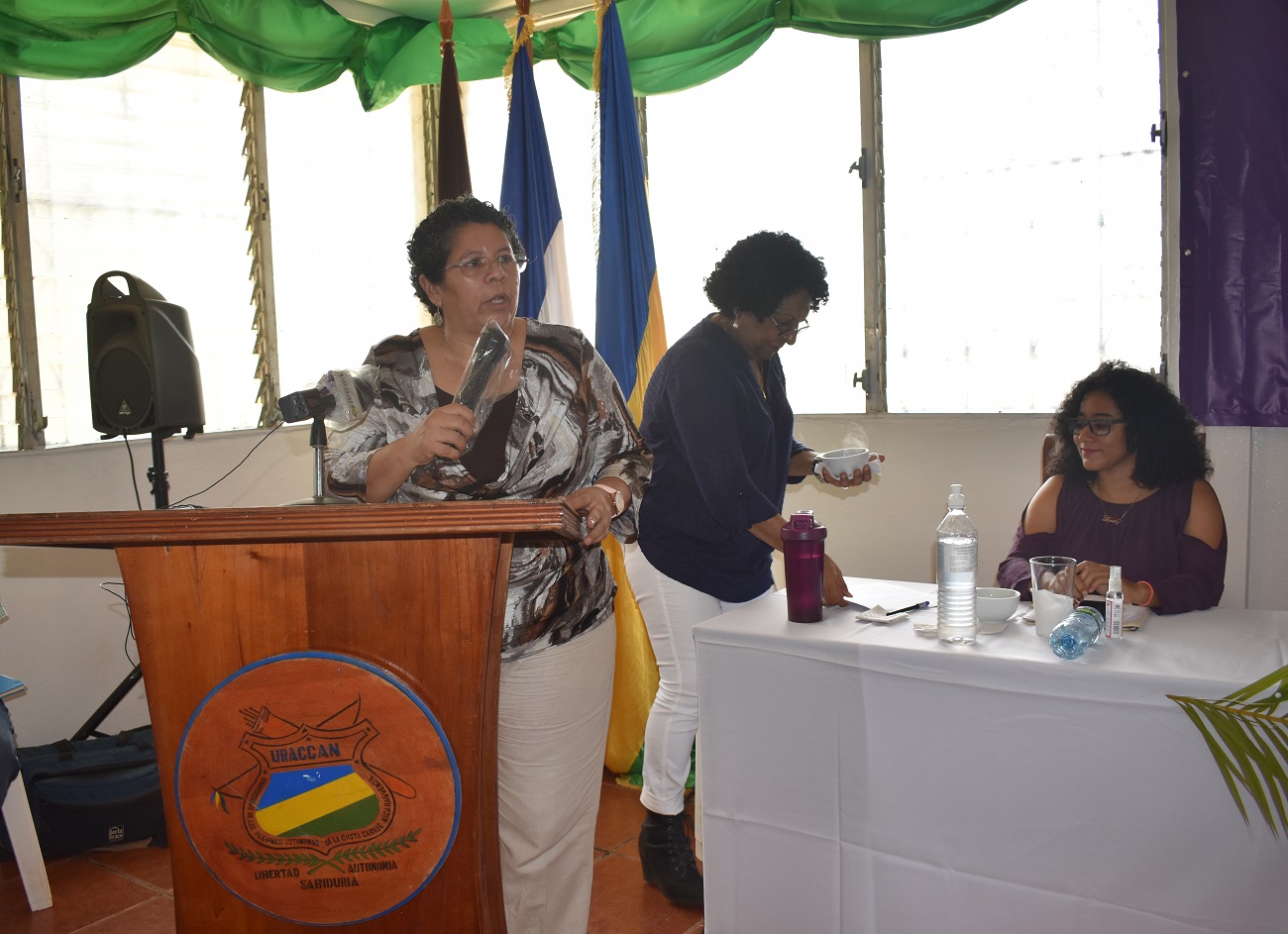
Dr. Ivania Lopez.
Within the framework of the UNESCO Chair
"(The) COVID-19 is not a danger, it is a risk and we must learn to manage it," as Dr. Ivania López, coordinator of the URACCAN Health Sciences area at the Bilwi compound, indicated during the presentation entitled "COVID-19 as a global pandemic affecting peoples", from a space for dialogue on the intercultural approach of the disease in multi-ethnic contexts , held this Friday at the Intercultural Community University, within the framework of the UNESCO Chair: "Wisdoms and Knowledge of Peoples" installed in URACCAN.
Dr. López emphasized the impacts of the COVID-19 pandemic on the peoples of the Caribbean Coast in physical and mental health. In addition, it gave a brief summary of the origin of the virus on how it has spread around the world and how it should be prevented taking into account the multi-ethnic context of the Caribbean Coast.
Dr. Ivania shared aspects of the methods of spreading the disease, describing that health authorities, in order to detect a suspected or positive case, must first conduct epidemiological nexus research to immediately care for the patient presenting symptomatology, test him and decree it as a COVID-19 infection.
The academic also gave a brief description of coronaviruses and shared examples of the types that exist, characterized by causing discomfort to humans and animals, "coronaviruses can affect both animals and people; it can cause several diseases, one of these diseases, is the common flu, or the common cold, also this type of virus gives us diseases that we call medium-origin respiratory syndrome and severe acute respiratory syndrome, which we can easily control," Lopez said.
Affects of the pandemic in villages such as risk management
The
population of the Nicaraguan Caribbean Coast is very vulnerable, because we have very little access to real information, "we are receiving a lot of information where we cannot discriminate which is the most correct, there is a lot of fear and this arises because we do not know a clear explanation, we are not convinced that the protective measures that are telling us are going to help us to deal with this disease , we incredibly question the recommendations and knowledge of health experts," Lopez said.
If we take into account that coronavirus is a risk to the whole family, the general population must return to all the protective measures issued by the health authorities of the World Health Organization (WHO), Pan American Health Organization (PAHO) and the Ministry of Health (Minsa), "why are we going to care about the person who is affected? , if you're going to take care of her, why are we going to wear ourselves down on that, let's waste on the protective measures I'm going to do, I'm going to call the pastor to give me spiritual strength, the traditional doctor to give me some plant recommendations, that's managing the risk," Lopez said.
Finally, Dr. Ivania López said that Western medicine in conjunction with traditional medicine plays an important role in preventing COVID-19 from the indigenous, Afro-descendant and mixed-race peoples of the Caribbean Coast "this disease is not going to go away, this disease came to stay and humanity is looking for how to deal with it (...) let's protect ourselves by practicing respiratory and hand hygiene," she concluded.
- Log in to post comments
- 61 views
